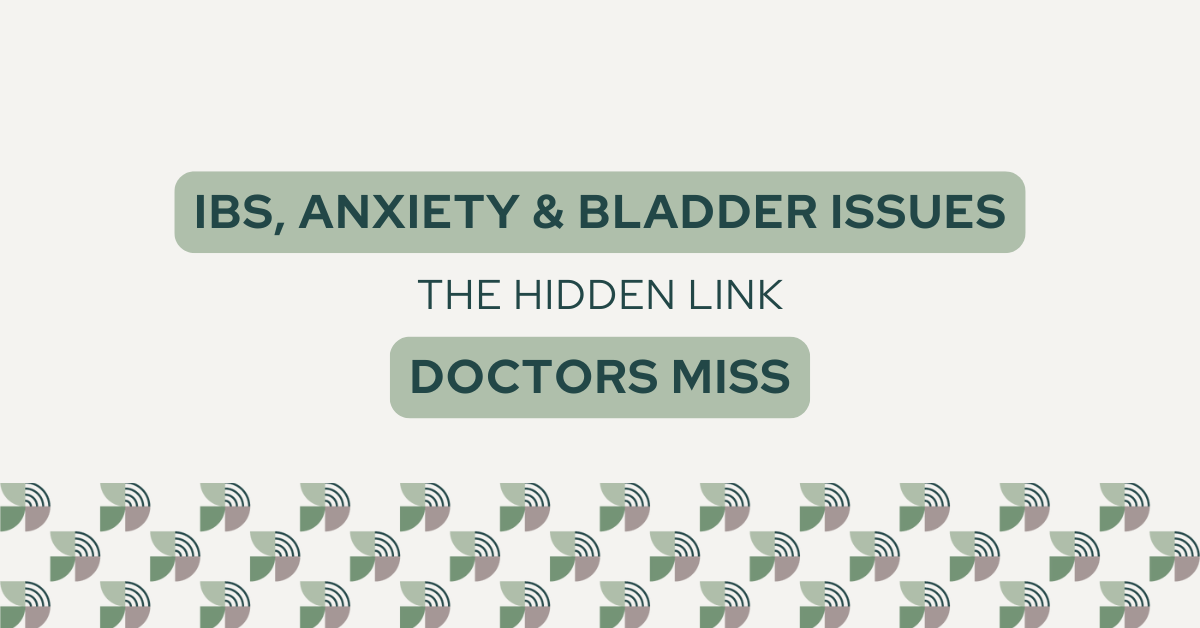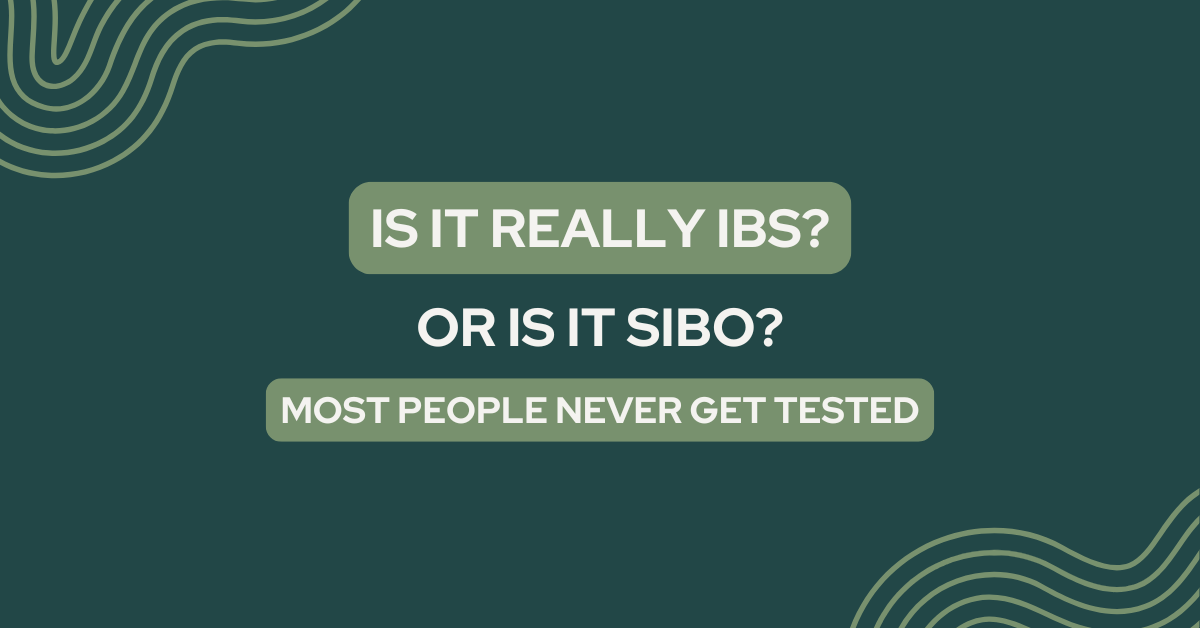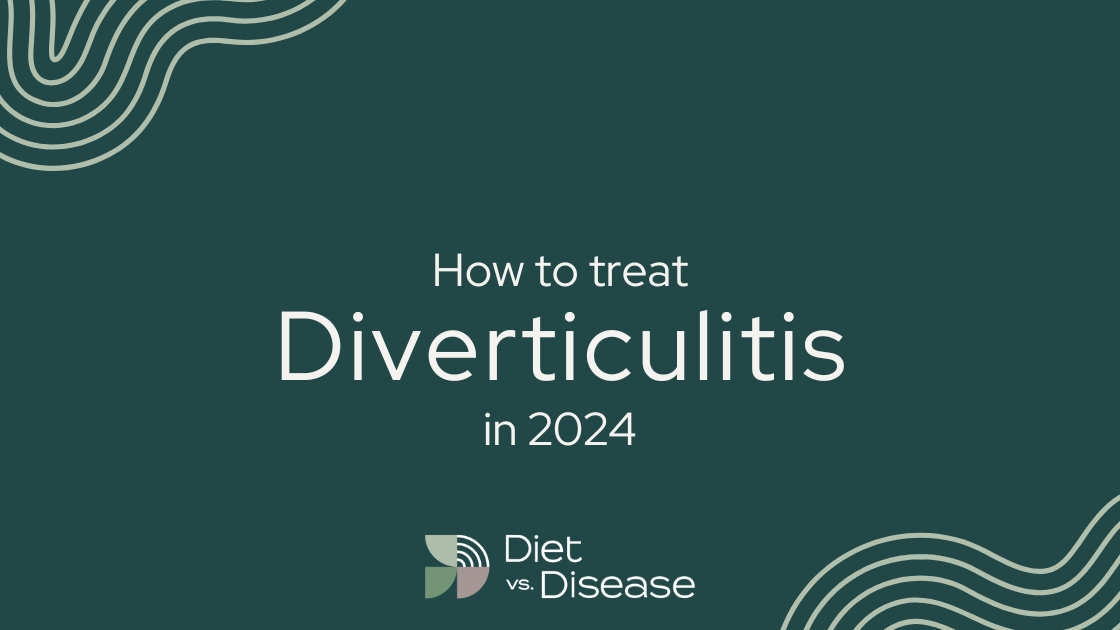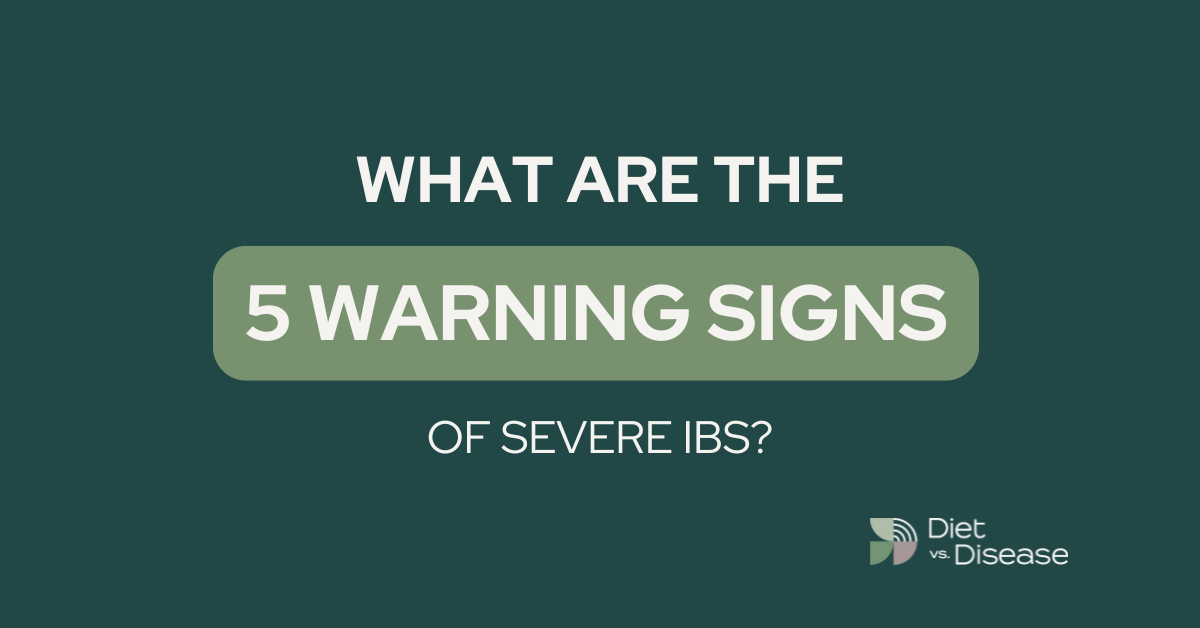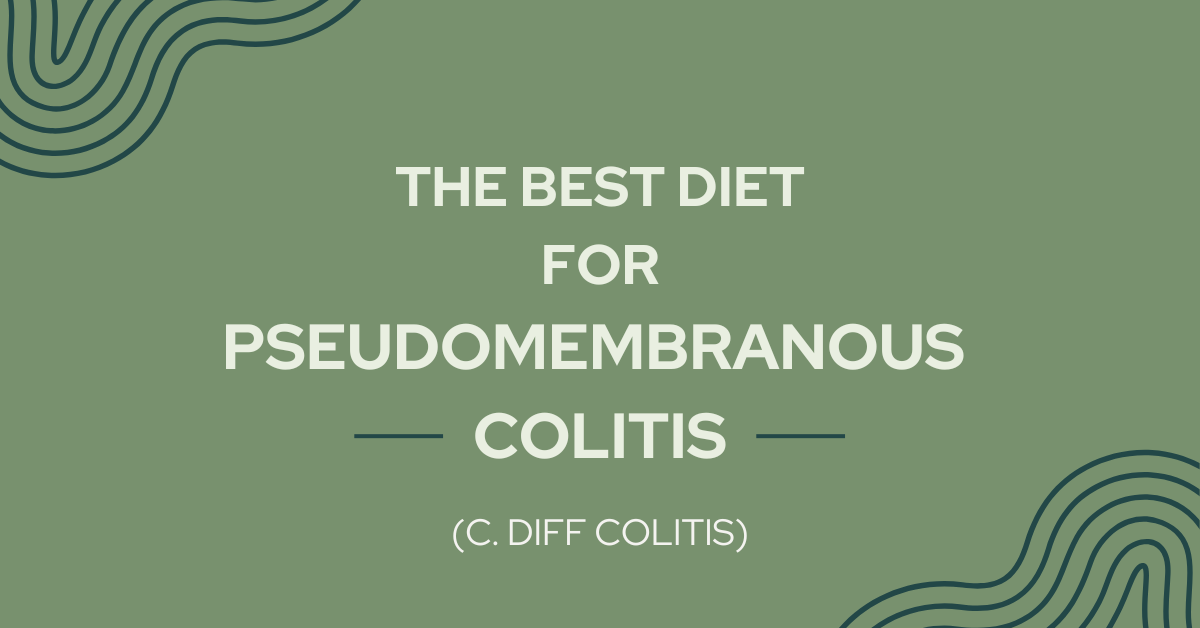What is a digestive disorder?
Digestive orders are increasingly common and refer to any kind of disorder which affects the digestive system.
This includes heartburn, irritable bowel syndrome (IBS), inflammatory bowel disease (IBD) and constipation.
Managing digestive disorders naturally
Depending on the digestive disorder, there may be a specific diet for your condition.
The low FODMAP diet can result in big improvements for those with IBS whereas a low residue diet can help manage IBD flare-ups.
If you have any serious symptoms such as significant unexplained weight loss, diarrhea which persists for more than two days, severe pain or black/bloody stools then you should seek medical advice as soon as possible.
All articles about Digestive Disorders
IBS, Anxiety & Bladder Issues: The Hidden Link Doctors Miss
If you’ve ever had IBS symptoms that come with bladder urgency, pelvic pain, or just feel like your whole lower body is out of sync…
You’re not imagining it.
The gut, the brain, and the bladder — plus the pelvic floor — are all part of the same network. And if you don’t understand how they influence each other, you’ll never get full relief.
This is a monumental missing link in gut health that I want to unpack for you today, and it’s especially important if your approach has always been limited to diet changes and hasn’t really helped your gut.
In this article, I’m going to give you a quick foundation so you understand what the gut-brain-bladder axis is, why it matters, and how to restore balance when this axis becomes disrupted.
[Discover More…]Is It Really IBS… or Is It SIBO? (Most People Never Get Tested)
Have you been told you’ve got IBS… but your symptoms never seem to go away, even when you try a low FODMAP diet and other approaches?
There’s a reason for that—1 in 3 IBS cases could actually be caused by something called SIBO.
And the worst part? Most doctors don’t test for it.
At Diet vs. Disease, we’ve tested and treated this in thousands of clients across North America, Australia, and Europe — and in this article, you’ll learn exactly if you should suspect SIBO, how to test for it, and what your results actually mean.
[Discover More…]How To Treat Diverticulitis: The 2 Steps You Need To Know
So you’ve experienced just how awful a diverticulitis flare-up can be.
Or perhaps you’ve had multiple flare-ups and you don’t want to go through that anymore.
The good news is based on my experience of more than 10 years in the field, I’m going to share with you two fundamental steps that will ensure that you get symptom-free and that you restore your gut health and resilience.
[Discover More…]What Are The 5 Warning Signs Of Severe IBS?
In this article we’ll look at the 5 main warning signs and symptoms of IBS, because a lot of patients get left on their own here by the doctor and are not sure if they have IBS or what to do.
In fact, can you guess what percentage of people these days are believed to have IBS, both globally but then also specifically in western countries, like the US, Canada, UK and Australia?
[Discover More…]The Baking Soda Test for Digestion
Your dietitian might suggest this simple test involving baking soda and water, known as ‘The Baking Soda Test’. Here is why. Your stomach is like a chemical factory, churning out various acids to break down the food you eat. Sometimes, this acid production can get out of balance. Some folks end up with too much stomach acid, leading to reflux issues. Others might have too little stomach acid, which can mimic reflux symptoms such as bloating, fullness, and discomfort. Now, let’s dive into some basic chemistry: Baking soda is a base (or alkaline substance), and it reacts with stomach acid to produce carbon dioxide gas. If you take baking soda on an empty stomach, it should trigger a burp within a few minutes due to the gas formation. If you don’t burp, it could be a sign that your stomach[Discover More…]
The Gut-Brain Axis Explained in Plain English
One of the most cutting-edge areas of research involves the ‘gut-brain axis’ – the connection between the brain, gut, and microbiome and its potentially huge influence over our health.
Only recently have scientists started to better understand the gut-brain-microbiome axis and how it can impact not only physical and digestive issues, such as irritable bowel syndrome (IBS), but also mental health conditions like depression and anxiety.
This article investigates our current understanding of what the gut-brain axis is, the role of the gut microbiome, and how our physical and mental health can be compromised when communication between one or more parts along this axis becomes faulty.
[Discover More…]Fecal Impaction: How To Come Unstuck From an Impacted Bowel
[Last updated 7th of March, 2023]
Fecal impaction is fairly common, particularly in older adults and people who are bedridden.
In fact, one study found that 42% of seniors in a geriatric ward had experienced it (1).
It’s not usually a big deal once its resolved, but untreated impaction can result in very serious medical complications. It can also increase the risk of future impactions.
So what is fecal impaction, and can it be treated at home? Let’s take a look at the evidence.
[Discover More…]Can You Treat H. Pylori Naturally? A Look At Tests, Symptoms and Proven Treatments
[Last Updated 5th October, 2019]
H. pylori is a very common bacteria.
Many people have it and don’t even realize it. However, it’s sometimes difficult to treat and can cause serious health problems in some cases.
Certain foods and supplements have been reported to fight H. pylori alone and in combination with standard medical treatments.
This article explores how well diet and other natural treatments work against H. pylori.
[Discover More…]A Beginner’s Guide to Ischemic Colitis: Symptoms, Treatment and Diet
[Last updated 7th March, 2023]
Any sort of abdominal pain can be frustrating.
Add bloody stool to the mix, and it can turn downright scary.
Often these types of symptoms are linked to an issue in the gut, and they may be tricky to diagnose and ultimately treat.
Ischemic colitis is one of these conditions, and it’s often confused with other inflammatory bowel diseases.
This article clears up any confusion about what ischemic colitis is and the best short- and long-term treatments and dietary plans to keep symptoms at bay.
[Discover More…]Microscopic Colitis And Diet: Beginner’s Guide To Treating Collagenous and Lymphocytic Colitis
Chronic and frequent diarrhea can make anyone’s life miserable.
This is what those with microscopic colitis deal with on a nearly daily basis.
This inflammatory condition of the colon, broken down into two forms—collagenous and lymphocytic colitis—is becoming increasingly common, with more people seeking quick relief.
Here, we explore the best treatments for both forms of microscopic colitis and how diet and lifestyle changes may be your best long-term course of action.
[Discover More…]Fecal Microbiota Transplants: Does It Work Like Magical Poop?
[Last updated 14th August, 2018]
A fecal microbiota transplant (FMT) is a procedure where fecal matter, or stool, is collected from a healthy donor and transplanted to a recipient.
Its purpose is to replace good bacteria in the colon and help restore the individual back to good health.
While it may sound like an extreme approach, FMT can provide astonishing results when used appropriately.
This article reviews how FMT works, the risks involved, and who may benefit. You’ll also learn about the future applications of this intriguing therapy.
[Discover More…]Beginner’s Guide To Beating Pseudomembranous Colitis (C. diff Colitis): Explained in Plain English
Pseudomembranous colitis refers to inflammation in the gut that is associated with an overgrowth of C. diff bacteria.
This condition can cause very uncomfortable gastrointestinal symptoms that are very serious if not managed properly.
Unfortunately, pseudomembranous colitis is becoming more common with people often experiencing it more than once.
This article explores what to eat and drink during a C. diff infection, and what diet can help prevent pseudomembranous colitis from recurring.
[Discover More…]


